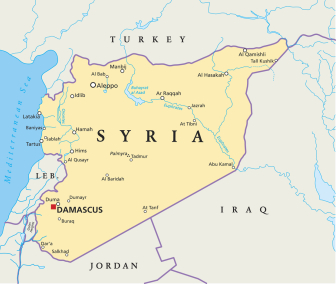
As of 31 January, the UK has officially left the European Union, and while the exact nature of what a post-Brexit Britain will look like remains hotly debated, one thing is imperative: the UK must not relinquish its role as a leading voice in the promotion and protection of human rights around the world, including the right to freedom of religion or belief (FoRB).
According to a report published by the Pew Research Center in 2019, both government restrictions on religion and social hostilities motivated by religion saw a marked increase between 2007 and 2017. It is estimated that 52 governments impose "high" or "very high" restrictions on the right to FoRB, and that people experience high levels of social hostilities involving religion in 56 countries of the 198 countries that were monitored.
Against this backdrop, it is vital that the UK demonstrates a firm commitment to protecting this right. The government must speak boldly when challenging FoRB violations, raise FoRB in multilateral fora and sufficiently resource the Foreign and Commonwealth Office to raise FoRB in bilateral and multilateral meetings.
In addition to leaving the EU, the UK also stepped down from the UN Human Rights Council (HRC) at the end of 2019, having completed the maximum two terms. These developments do not mean the UK no longer has a platform on which to share its concerns; there are a number of avenues which can be used to raise violations of FoRB and other human rights.
The UK will still participate at the HRC as an observer state, including by engaging with the Council's Universal Periodic Review (UPR) process. The UPR is a procedure by which UN member states have their human rights records reviewed every four and a half years. Countries are able to submit recommendations to those under review, presenting a valuable opportunity to draw attention to human rights issues.
The UK has engaged positively with the UPR process since its inception, making recommendations to states on a wide range of important human rights concerns, including FoRB. For example, in January 2019 the UK called on Eritrea, a state that is notorious for human rights violations, to "Ensure due process for all detainees and release those arbitrarily detained for political and religious reasons."
The UK can also continue to raise human rights concerns at the UN in New York, where it is one of five permanent members on the UN Security Council. During the 74th session of the UN General Assembly's (UNGA's) Third Committee in October 2019, the UK's Permanent Representative to the UN reiterated Britain's commitment to the promotion of fundamental human rights after Brexit, including the right to FoRB, stating: "Make no mistake; we will robustly defend human rights here at the UN and beyond... be in no doubt that we will continue to speak up for the rights of religious minorities across the world."
Aside from international fora like these, the UK's post-Brexit trade negotiations present another valuable opportunity for the country to demonstrate a robust commitment to the promotion and protection of human rights worldwide. The World Trade Organisation (WTO) estimates that over 75% of the world's governments now participate in preferential trade agreements that include human rights components; the UK must ensure that it embraces this norm.
Trade negotiations provide the UK with a window of opportunity to set the terms of its engagement with other nations. The UK must conduct detailed assessments of the human rights situations in potential trading partners, ensuring that any agreements include strict provisions for partners to respect the rights laid out in the Universal Declaration on Human Rights (UDHR), and engaging with civil society and other actors to monitor trade partners after agreements have been signed.
The UK's international engagement is about to change. The Prime Minister and the government have an important and valuable opportunity to demonstrate that the UK will continue to stand up for and speak out on behalf of people of all faiths and none who face marginalisation, discrimination and even persecution because of their religious beliefs, and it is an opportunity which must be seized.
Mervyn Thomas is the Chief Executive of Christian Solidarity Worldwide, a human rights organisation specialising in freedom of religion or belief.







